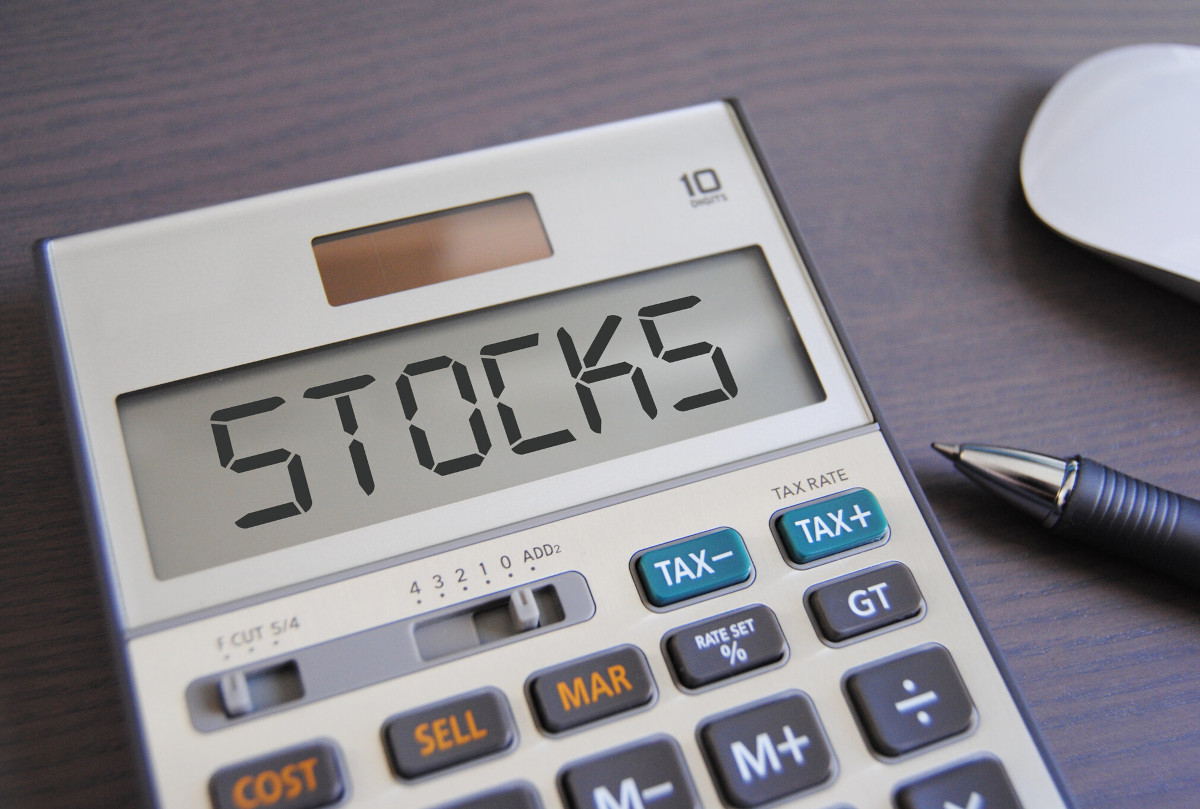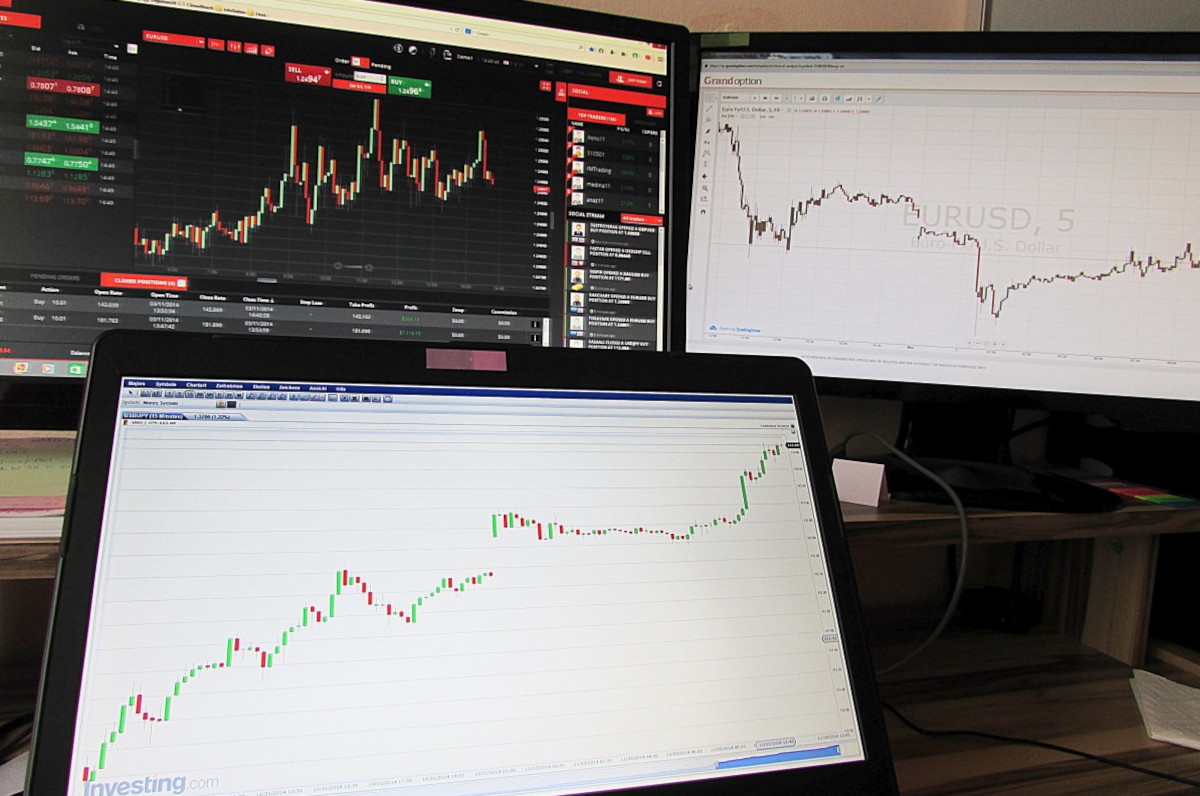(VIANEWS) – Smith & Nephew (SNN), Capital Southwest Corporation (CSWC), John Hancock (HPS) are the highest payout ratio stocks on this list.
Here’s the data we’ve collected of stocks with a high payout ratio up to now. The payout ratio in itself isn’t a guarantee of a future good investment but it’s an indicator of whether dividends are being paid and how the company chooses to issue them.
When investigating a potential investment, the dividend payout ratio is a good statistic to know so here is a list of some companies with an above 30% payout ratio.
1. Smith & Nephew (SNN)
124.58% Payout Ratio
Smith & Nephew plc, together with its subsidiaries, develops, manufactures, markets, and sells medical devices and services in the United Kingdom and internationally. The company operates through three segments: Orthopaedics, Sports Medicine & ENT, and Advanced Wound Management. The company offers knee implant products for knee replacement procedures; hip implants for revision procedures; and trauma and extremities products that include internal and external devices used in the stabilization of severe fractures and deformity correction procedures. It also provides sports medicine joint repair products, including instruments, technologies, and implants to perform minimally invasive surgery of the joints, such as the repair of soft tissue injuries and degenerative conditions of the shoulder, knee, hip, and small joints. In addition, the company offers arthroscopic enabling technologies comprising fluid management equipment for surgical access, high-definition cameras, digital image capture, scopes, light sources, and monitors to assist with visualization inside the joints, radio frequency, electromechanical and mechanical tissue resection devices, and hand instruments for removing damaged tissue; and ear, nose, and throat solutions. Further, it provides advanced wound care products for the treatment and prevention of acute and chronic wounds, which comprise leg wounds, diabetic and pressure ulcers, burns, and post-operative wounds; advanced wound bioactives, such as biologics and other bioactive technologies for debridement and dermal repair/regeneration, as well as regenerative medicine products, including skin, bone graft, and articular cartilage substitutes; and advanced wound devices, such as traditional and single-use negative pressure wound therapy, and hydrosurgery systems. It primarily serves the healthcare providers. Smith & Nephew plc was founded in 1856 and is headquartered in Watford, the United Kingdom.
Earnings Per Share
As for profitability, Smith & Nephew has a trailing twelve months EPS of $0.6.
PE Ratio
Smith & Nephew has a trailing twelve months price to earnings ratio of 45.96. Meaning, the purchaser of the share is investing $45.96 for every dollar of annual earnings.
The company’s return on equity, which measures the profitability of a business relative to shareholder’s equity, for the twelve trailing months is 5.02%.
Yearly Top and Bottom Value
Smith & Nephew’s stock is valued at $27.58 at 13:23 EST, way under its 52-week high of $33.09 and way higher than its 52-week low of $21.53.
2. Capital Southwest Corporation (CSWC)
103.42% Payout Ratio
Capital Southwest Corporation is a business development company specializing in credit and private equity and venture capital investments in middle market companies, mezzanine, later stage, mature, late venture, emerging growth, buyouts, recapitalizations and growth capital investments. It does not invest in startups, publicly traded companies, real estate developments, project finance opportunities, oil and gas exploration businesses, troubled companies, turnarounds, and companies in which significant senior management is departing. In lower middle market, the firm typically invests in growth financing, bolt-on acquisitions, new platform acquisitions, refinancing, dividend recapitalizations, sponsor-led buyouts, and management buyouts situations. The investment structures are Unitranche debt, subordinated debt, senior debt, first and second lien debt, and preferred and common equity. The firm makes equity co-investments alongside debt investments, up to 20% of total check and only makes non-control investments. It prefers to invest in Industrial manufacturing and services, value-added distribution, healthcare products and services, business services, specialty chemicals, food and beverage, tech-enabled services and SaaS models. The firm seeks to invest in energy services and products, industrial technologies, and specialty chemicals and products. Within energy services and products, the firm seeks to invest in each segment of the industry, including upstream, midstream and downstream, excluding exploration and production with a focus on differentiated products and services, equipment and tool rental, consumable products, and drilling and completion chemicals. Within industrial technologies, it seeks to invest in automation and process controls, handling and packaging equipment, industrial filtration and fluid handling, measurement, monitoring and testing, professional tools, and sensors and instrumentation. Within and specialty chemicals and products, the firm seeks to invest in businesses that develop and manufacture highly differentiated chemicals and products including adhesives, coatings and sealants, catalysts and absorbents, cosmeceuticals, fine chemicals, flavors and fragrances, performance lubricants, polymers, plastics and composites, chemical dispensing and filtration equipment, professional and industrial trade consumables and tools, engineered solutions for HVAC, plumbing, and electrical installations, specified high performance materials for fire protection and oilfield applications. It may also invest in exceptional opportunities in building products. The firm seeks to invest in the United States. The firm seeks to make investments ranging from $5 to $25 million in securities. It seeks to make equity investments up to $5 million and debt investments between $5 million and $20 million and co-invest in transaction size upto $40 million. It prefers to invest in companies with revenues approaching above $10 million, profitable operations, historical growth rate of at least 15 percent per year. . Within the lower middle market, it seeks to invest in with less than $15 million in EBITDA and also opportunistically invests in the upper middle market, generally defined as companies with EBITDA in excess of $50 million. In addition to making direct investments, the firm allocates capital to syndicated first and second lien term loans in the upper middle market. Criteria for Upper Middle Market Syndicated 1st Lien is EBITDA Size more than $30 million, Closing Leverage greater than 4 times, investment hold size between $5 million and $7 million, investment yield greater than 6.5%. Criteria for Upper Middle Market Syndicated 2nd Lien is EBITDA Size more than $50 million, Closing Leverage greater than 6 times, investment hold size between $5 million and $7 million, investment yield greater than 9%. It prefers to take a majority and minority stake. The firm has the flexibility to hold investments for very long period in its portfolio companies. It may also invest through warrants. The firm prefers to take Board participation in its portfolio companies. Capital Southwest Corporation was founded on April 19, 1961 and is based in Dallas, Texas.
Earnings Per Share
As for profitability, Capital Southwest Corporation has a trailing twelve months EPS of $2.36.
PE Ratio
Capital Southwest Corporation has a trailing twelve months price to earnings ratio of 10.23. Meaning, the purchaser of the share is investing $10.23 for every dollar of annual earnings.
The company’s return on equity, which measures the profitability of a business relative to shareholder’s equity, for the twelve trailing months is 13.74%.
Dividend Yield
As maintained by Morningstar, Inc., the next dividend payment is on Mar 14, 2024, the estimated forward annual dividend rate is 2.28 and the estimated forward annual dividend yield is 9.54%.
Moving Average
Capital Southwest Corporation’s worth is under its 50-day moving average of $24.31 and higher than its 200-day moving average of $22.01.
3. John Hancock (HPS)
88.59% Payout Ratio
John Hancock Preferred Income Fund III is a closed ended fixed income mutual fund launched and managed by John Hancock Investment Management LLC. It is co-managed by John Hancock Asset Management. The fund invests in the fixed income markets of the United States. It seeks to invest in securities of companies operating across diversified sectors. The fund primarily invests in preferred securities or other fixed-income securities rated investment grade or higher by Moody's or Standard & Poor's. It benchmarks the performance of its portfolio against the Bank of America Merrill Lynch Hybrid Preferred Securities Index and Barclays U.S. Aggregate Bond Index. John Hancock Preferred Income Fund III was formed on June 19, 2003 and is domiciled in the United States.
Earnings Per Share
As for profitability, John Hancock has a trailing twelve months EPS of $-0.97.
The company’s return on equity, which measures the profitability of a business relative to shareholder’s equity, for the twelve trailing months is negative -6.52%.
4. Comstock Resources (CRK)
65.79% Payout Ratio
Comstock Resources, Inc., an independent energy company, engages in the acquisition, exploration for, development, and production of oil and natural gas primarily in Texas, Louisiana, and North Dakota. As of December 31, 2020, the company had 5.6 trillion cubic feet of natural gas equivalent and 17 million barrels of oil equivalent of proved reserves. It also owns interests in 2,864 producing oil and natural gas wells. Comstock Resources, Inc. was founded in 1983 and is headquartered in Frisco, Texas.
Earnings Per Share
As for profitability, Comstock Resources has a trailing twelve months EPS of $0.76.
PE Ratio
Comstock Resources has a trailing twelve months price to earnings ratio of 10.7. Meaning, the purchaser of the share is investing $10.7 for every dollar of annual earnings.
The company’s return on equity, which measures the profitability of a business relative to shareholder’s equity, for the twelve trailing months is 9.09%.
Sales Growth
Comstock Resources’s sales growth is negative 20% for the ongoing quarter and 5.8% for the next.
5. Sandy Spring Bancorp (SASR)
49.82% Payout Ratio
Sandy Spring Bancorp, Inc. operates as the bank holding company for Sandy Spring Bank that provides commercial and retail banking, mortgage, private banking, and trust services to individuals and businesses. It operates through three segments: Community Banking, Insurance, and Investment Management. The Community Banking segment offers financial products and services, including various loan and deposit products. Its loan products include commercial real estate loans, commercial construction loans, and other commercial loans; residential real estate loans; and consumer loans comprising home equity loans and lines, installment loans, and personal lines of credit. The Insurance segment provides general insurance agency services and annuities, such as commercial, personal, and medical liability lines. The Investment Management segment offers investment management and financial planning, including cash flow analysis, investment review, tax and retirement planning, insurance analysis, and estate planning to individuals, families, small businesses, and associations. It also provides personal trust and wealth management services. The company operates a network of approximately 50 locations in Maryland, Northern Virginia, and Washington D.C. Sandy Spring Bancorp, Inc. was founded in 1868 and is headquartered in Olney, Maryland.
Earnings Per Share
As for profitability, Sandy Spring Bancorp has a trailing twelve months EPS of $2.73.
PE Ratio
Sandy Spring Bancorp has a trailing twelve months price to earnings ratio of 8.31. Meaning, the purchaser of the share is investing $8.31 for every dollar of annual earnings.
The company’s return on equity, which measures the profitability of a business relative to shareholder’s equity, for the twelve trailing months is 8%.
Dividend Yield
As claimed by Morningstar, Inc., the next dividend payment is on Feb 13, 2024, the estimated forward annual dividend rate is 1.36 and the estimated forward annual dividend yield is 6%.
Moving Average
Sandy Spring Bancorp’s worth is way below its 50-day moving average of $25.22 and below its 200-day moving average of $23.05.
Yearly Top and Bottom Value
Sandy Spring Bancorp’s stock is valued at $22.68 at 13:23 EST, way below its 52-week high of $34.37 and way above its 52-week low of $19.27.
Volume
Today’s last reported volume for Sandy Spring Bancorp is 190323 which is 3.71% below its average volume of 197660.
1. 1 (1)
1% Payout Ratio
1
Earnings Per Share
As for profitability, 1 has a trailing twelve months EPS of $1.
PE Ratio
1 has a trailing twelve months price to earnings ratio of 1. Meaning, the purchaser of the share is investing $1 for every dollar of annual earnings.
The company’s return on equity, which measures the profitability of a business relative to shareholder’s equity, for the twelve trailing months is 1%.











